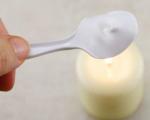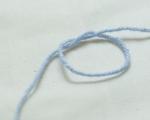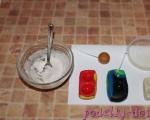Bad putrid odor from the mouth. Causes of sweet smell from the mouth. Dental causes of halitosis
The sweet smell from the mouth serves common symptom many diseases. In half of the cases, there is a lesion of the mucous membrane, inflammation of the roots of the teeth occurs, malaise and weakness appear. From bad smell often suffer people infected with the immunodeficiency virus or AIDS patients.
Chronic inflammatory process in the body leads to the appearance of stale breath and a bad odor. Patients suffering from drug-induced damage to the esophagus cannot drink or eat even liquid meals, and bad breath - feature formation of ulcers on the mucous membrane.
Medically called halitosis, bad smell out of the mouth can be caused by poor dental hygiene, poor sleep habits, and eating certain foods. It can also be caused by dry mouth, also known as that rough feeling when you wake up from a night of sleep with your mouth open. While there are several factors that can cause bad breath in the morning, there are also a few methods you can try to avoid waking up with a mouthful of bad breath.
Practical hygienic hygiene
Good oral hygiene is the key to fighting bad breath. Get into the habit of brushing your teeth and brushing your teeth after every meal and before bed to eliminate bad breath bacteria in your mouth. While a regular toothbrush will do the job if you use it regularly, electric toothbrushes are very effective at killing bad breath. Many electric toothbrushes have timers so you know you're brushing for the right amount of time to really get rid of stinky bacteria. Electric toothbrushes also distribute toothpaste in a uniform motion, which helps to remove plaque more effectively.
- Brush and brush your teeth before bed.
- Invest in electrical toothbrush.
In children who are in a severe stage of lymphogranulomatosis, an unpleasant odor appears, indicating exhaustion of the body.
In addition, the stench occurs with Kaposi's sarcoma, diabetes mellitus, precancerous condition of the oral mucosa, aphthous stomatitis, herpes and chlamydial infections, periodontal disease.
If you have morning breath, chances are you have a fat white coating on the back of the tongue. This is a buildup of bacteria on your tongue that causes bad breath. Therefore, it is important to clean your tongue at least once a day to remove these bacteria.
You can dip a soft toothbrush into an alcohol-free mouthwash and clean your tongue by removing bacteria. Place it as far as possible on your tongue and then scrape it gently to remove any bacteria. You can also buy a special plastic scraper from your local pharmacy. . Rinse with non-alcoholic mouthwash. Washing your mouth that contains alcohol will dry out your mouth, and a dry mouth will lead to a buildup of stinky bacteria and bad morning breath. Look for a mouthwash that does not contain alcohol and has antiseptic or antibacterial properties.
Sweet breath is a common companion diabetes. However, one should not forget about the many other symptoms that accompany insidious disease. Insufficient amount of vitamins in food also contributes to the appearance unpleasant odor. Against the background of their deficiency develops.
If the patient's nose is constantly blocked, then the composition of the microflora in the oral cavity changes and begins to smell. Another reason for the appearance of an unpleasant odor is smoking after each meal. A similar picture occurs against the background of fungal infections, caries, insufficient care behind the teeth.
Visit your dentist regularly and have your teeth cleaned at least once a year. Your dentist will be able to monitor your bad breath and suggest possible means for your bad breath. Annual dental cleanings will help remove plaque from your teeth and any buildup on your tongue. This will reduce your chances of developing bad breath.
What homemade product can you gargle before bed to improve morning breath? Gargling with pepper will not improve your breath. In fact, this spice can irritate your throat! Whistling baking soda in the mouth creates alkaline environment, which helps kill bacteria that cause morning breath. Add a teaspoon baking soda to a cup of water and stir. Rinse the mixture for 1 minute, then spit.
Sweet smell from the mouth - very delicate issue. Careful hygiene care for teeth and gums will not help if a person has diabetes, and an unpleasant odor will annoy not only the wearer, but also others.
Diseases of the gastrointestinal tract (ulcer, gastritis, duodenitis), improper chewing of food also cause the appearance of a sweetish stench.
Adjusting Your Sleeping Habits
Snoring or breathing heavily through your mouth at night can increase the chance of bad breath. Most snorers and breathing apparatus sleep with their mouths open, causing dry mouth and inhibiting the development of nasty respiratory bacteria. Try exercising to breathe through your nose when you sleep by doing several rounds of conscious nasal breathing. Drink a glass of water before bed. Dehydration - big reason bad breath; dry mouth or lack of saliva can lead to the development of flavoring, volatile sulfur compounds. Drink by at least eight glasses of water a day and drink a glass of water before bed to clear your mouth of any lingering food particles or stinky bacteria. Drinking a glass of milk or taking two antacids can also help neutralize any bad breath in your mouth.
- Sleep on your side, not your back, to avoid snoring.
- Practice breathing through your nose rather than your mouth before bed.
- Before falling asleep, think about the proverb: "The nose is for breathing, the mouth is for eating."
Acute stomatitis is the cause of discomfort in people weakened by any disease. Some drugs - glucocorticoids, immunosuppressants, cytostatics - can cause side effects in the form of dryness and an unpleasant odor.
Discomfort with cytomegalovirus infection
A sharp, sweetish odor is a constant companion of an infection caused by the Epstein-Barr virus. In this case, severe inflammation develops on the mucous membrane of the pharynx. The patient complains about insufficient moisture saliva of the oral cavity and tongue, the appearance of plaque and a fetid odor.
Several dry mouth products on the market will increase saliva in the mouth. You can also keep the stimulant in your mouth while you sleep to avoid dry mouth. If you suffer from nasal congestion, how can you avoid morning breath? You should sleep on your side, not your stomach or back if you have a stuffy nose. Nasal congestion causes you to sleep with your mouth open, drying out your mouth and inviting bacteria. Sleeping on your side will drain your sinuses better than sleeping on your face or back. This can help you breathe through your nose instead of your mouth!
There the best option! A nasal drop, such as Neti Pot, can clear your nasal passages, allowing you to breathe through your nose instead of your mouth while you sleep. Sleeping with your mouth open causes dry mouth, a cozy atmosphere for morning respiratory bacteria. Read on for another quiz question.
Often sweet fragrance worries a child infected with cytomegalovirus. Yellow plaque on the tongue extends to the mucous membrane of the pharynx and esophagus.
The reasons for the appearance of the smell of rotting fruit during the period of infection are varied:
- dehydration of the body;
- taking painkillers;
- treatment with antidepressants.
The tongue becomes dry, rough, hoarseness occurs. The following complications affect the appearance of bad breath in a seriously ill child:
Taking an aspirin before bed may prevent a heart attack, but it won't improve your morning breath. Try using a nasal decongestant, such as chest. While dehydration can contribute to morning breath because it creates a dry environment for bacteria to grow, drinking water won't help you avoid bad breath if you have nasal congestion because you'll sleep with your mouth open anyway.
An aquatic vegetable or fruit, especially raw, can help clear the mouth of debris and any lingering food that can cause bad breath. Eat fresh fruits and vegetables such as raw carrots, celery, or apples. . Can be embarrassing social problem. For some, this is nothing more than an unreasonable concern, and in severe cases this is given the name of halitophobia - the fear of having bad breath when you don't really believe it. However, it is believed that 25% of the population does suffer from this unpleasant complaint on a regular basis.
- encephalitis;
- pneumonia;
- hepatitis.
Often the patient has signs of herpetic sore throat. Food particles get stuck in the tonsils, causing an unpleasant odor.
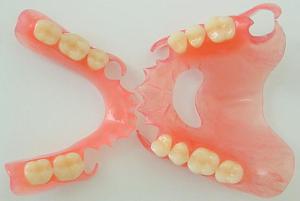
The main reasons for the appearance of the aroma of rotting fruit after eating are caused by a violation of carbohydrate metabolism. Such an odor from the mouth in an adult occurs if the patient is obese, and his weight is 30% more than normal. Violations in the structure of cells occur in the body, and the process of assimilation of insulin worsens. AT oral cavity little saliva is produced, blood circulation becomes difficult.
How can you tell if you have bad breath?
A simple lick and sniff test can help you determine if you have halitosis. Lick the back of your hand and let it dry. If you detect an unpleasant odor, it means that there is a strong chance that your breath also smells bad. A tongue with a white fluffy coating is also a sign. For a more accurate diagnosis, there is a clinical test that can be performed at the dentist using a halimeter, an instrument for measuring halitosis.
This is probably the most common cause of bad breath and is associated with an excess buildup of bacteria in the mouth. These bacteria break down trapped food particles, producing unpleasant sulfur compound odors, often compared to the smell rotten eggs.
It feels uncomfortable pungent odor acetone, which occurs not immediately after eating, but after a few hours. In a child, the stench appears before the onset of any disease or during a rise in temperature.
If the patient is thirsty, the frequency of urination increases, working capacity decreases at the same time, a diabetic coma develops, and the unpleasant smell of acetone is accompanied by nausea, vomiting, and abdominal pain. In this case, the person needs to urgently seek medical help.
Be attentive to oral hygiene. Brush and floss twice a day, and make sure you clean your tongue thoroughly, right down to your back, as this is where most of the bacteria is found. Dentures that are cleaned regularly or don't fit properly can also harbor bacteria and food in the mouth. Visit your dentist and hygienist for regular six monthly checkups.
How to get rid of the problem at home
Garlic is famously known to cause bad breath, and it's not just that its residue builds up in your mouth. Once it has been digested, the chemicals from the garlic are absorbed into the bloodstream, expelled through your lungs, and exhaled as what we call "garlic breath." Onions, leeks and leeks are other common offenders.
Often deterioration general condition and the appearance of an unpleasant odor is a consequence of the abuse of fatty, fried, spicy foods. The blood sugar level after eating rises to 9 units, and the urine has the smell of apples. If the patient has consumed alcohol, acetone is felt in the smell of the fumes, and after a few hours the aroma becomes unbearable. Acidosis develops - a sharp shift in the acid-base balance.
Avoid smelly foods, or choose carefully when you're going to eat them, not before an interview or date! Taking care of your mouthwash and brushing your teeth can help mask the odor, but the odor won't completely go away until the food has passed through your body.
Saliva is your body's built-in means of eliminating bacteria and helps keep your mouth clean. Dry mouth naturally occurs when you sleep due to decreased saliva production during the night, resulting in "morning breath". those who sleep with their mouth open and have been found to be more common in women than men, although it is not clear why. Dry mouth can also be side effect some medicines.
In an HIV-infected patient, the oral mucosa is affected by fungi of the genus Candida. A sweetish odor is a common symptom of secondary immunodeficiency.
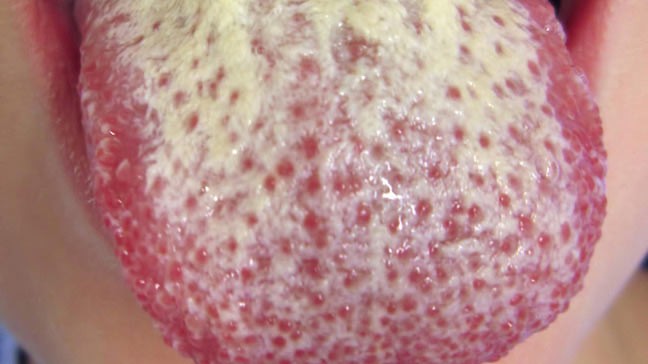
Candidal manifestation on the tongue.
Causes of inflammation may be related to the development iron deficiency anemia, diseases of the liver, intestines, stomach. Bile stagnates and becomes concentrated. Erosive gastritis or stomatitis may develop. The gums are covered with a white coating. They hurt and swell, an unpleasant odor appears from the mouth.
Drinking plenty of water to keep your mouth well hydrated is essential to keeping it clean. Also chew on foods such as raw vegetables and fruits, which can increase saliva production and rinse your mouth between meals. If you are using a mouthwash, make sure it does not contain alcohol, as alcohol will dry out your mouth and may further impair your breathing.
Diseases of other organs
For people with reflux, bad breath can be a common symptom. Nutritionist Amanda explains why. Controlling acid reflux is an important strategy for preventing the bad breath it can cause. Many people find that their symptoms improve when they avoid common triggers such as coffee, soda, chocolate, tomatoes, citrus fruits, alcohol, and heavy meals, especially close to bedtime.
Often, after an infection, the patient develops an acute inflammation of the pharyngeal mucosa. The reasons for the deterioration of the general condition of a person are associated with the appearance of wounds on the gums, a decrease in immunity, subfebrile temperature. Often the smell becomes unbearable after eating spicy food or smoking a cigarette, so the patient should follow a diet and give up bad habits.
Very restrictive low-carbohydrate diets
“Persons following restrictive low-carb diets may find their breath becomes acetone as their bodies create ketones,” explains Amanda. "These ketones are formed when the body starts burning fat to fuel the body's fuel processes when it doesn't have enough carbs to do so."
A bad taste in the mouth may indicate a deterioration in taste. Causes of bad taste in the mouth can range from altered taste to complete loss of the sense of taste. Things that normally taste sweet can come across as offensive. However, complete inability to taste is rare.
A sweetish aroma and dry mouth are constant companions of a diabetic patient, and if stomatitis is accompanied by a putrid odor, the lungs should be examined and the development of an abscess should be excluded.
Bad habits and stench
If a person has drunk a large amount of alcohol, certain time there is a musty smell. The body breaks down ethanol at a rate of 7–9 ml per hour. The fermentation process in a woman is slower, and the sweetish aroma from the mouth appears much later than in a man. About 70% of alcohol is excreted with breathing.
During a hangover, the patient suffers from a severe headache, nausea. He is disturbed by an unpleasant odor, dry mouth and intense thirst. The most severe withdrawal, accompanied by the appearance of a disgusting smell, occurs after drinking cognac, whiskey, brandy.
The main cause of an unpleasant odor is a violation water balance in the body and dehydration of cells. Ethanol under the action of enzymes turns into acetaldehyde, and the patient develops nausea, belching of poorly digested food, bad breath. Particularly affected are people who drink alcohol with carbonated water.
The smoker has a putrid-sweet aroma from the mouth, which intensifies after eating. Plaque forms on the surface of the teeth Brown color, which includes dangerous substances: indole and phenol. In this case, the smell from the mouth changes dramatically and, as a rule, not for the better.
It should be remembered that the stench from the mouth is a symptom that should be paid attention to and examined by a doctor. As you can see, among a large number causes, there are really dangerous to life and health.
Smell in stressful situations
In patients with primary lesion nervous system human immunodeficiency virus, resulting in constant stress and nervous tension appears sweet bad breath. With alcoholic encephalopathy (dystrophic brain damage), a person suffers from a severe headache, is in a state of depression, and ceases to take care of himself.
A full mouth of carious teeth worsens the patient's condition, increased salivation appears, and mucus accumulates in the nasal part of the pharynx. Bad breath in a person suffering from neurasthenia may occur due to a lack of vitamins or a large number of purulent plugs on the surface of the tonsils.
After a long stressful situation some patients develop periodontitis (inflammation) of the gums, and if the nose is blocked, the smell increases, especially after sleep. Anxiety, Bad mood affect the duration of the putrid-sweet flavor and dry mouth. From any food, even homemade food, salty and smoked foods, a rotten smell appears.
The patient's condition improves after the cause is eliminated. nervous breakdown. beneficial effect provides medication and a strict diet. Can be used to improve mouth odor folk recipes but it needs to be done on a regular basis.
The problem of bad breath is not always taken seriously. In medicine, this phenomenon is called halitosis. Eliminate odor with masking agents strong aroma impossible, since in most cases the cause of the disease is non-dental in nature.
In fact, halitosis cannot be called an independent disease, rather it is a sign pathological processes flowing in the body. Lack of proper oral care bad smell increases, delivering discomfort not only to the patient, but also to others.
Persistent is considered the main symptom of the problem. In some cases, the manifestations of the disease are not so strong that the patient can determine them independently. By self-diagnosis, the presence of bad breath can be detected.
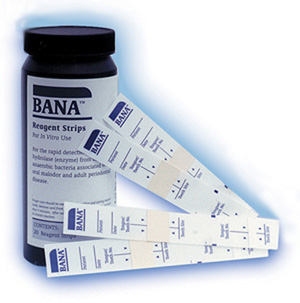
To additional features may include the formation of plaque on the tongue, inflammation of the mucous membrane, sensation bad taste in the mouth. These symptoms do not directly indicate halitosis and may vary, depending on the cause of the disease and the presence of complicating factors.
 AT laboratory conditions the content of the exhaled gas is analyzed. The excess of hydrogen sulfide, amines and other components will allow us to understand the nature of the pathology. Among other diagnostic methods:
AT laboratory conditions the content of the exhaled gas is analyzed. The excess of hydrogen sulfide, amines and other components will allow us to understand the nature of the pathology. Among other diagnostic methods:
- BANA test;
- gas chromatography;
- sulfide monitoring;
- oral smear analysis.
To establish the exact clinical picture diagnostic examinations are prescribed by other specialists.
Causes of bad breath
The following factors contribute to the occurrence of halitosis in adults:

Local causes of bad breath are easier to treat. If these are problems of the oral cavity, then it will be possible to eliminate the unpleasant odor with dental means. Get rid of sulfur formations in the mouth will help good hygiene oral cavity.
But not all types of halitosis are amenable to fast treatment. Before prescribing the appropriate therapy, it is necessary to understand why the smell appeared and what kind of form you have to deal with.
What types of halitosis exist?
Bad breath is not always homogeneous. With pathologies internal organs you have to deal with one type of halitosis, with dental problems - with another. Traditionally, the following types are distinguished:

 Also allocate pseudohalitosis and halitophobia. In the first case, it is psychological problem, which is associated with obsessive-compulsive states that require psychotherapeutic treatment, when it seems to the patient that he constantly "stinks" from his mouth. In the second case, the fear of the appearance of bad breath after an illness is implied. As a rule, this is due to the high suspiciousness of the patient and the moral discomfort that he experienced during the period of illness.
Also allocate pseudohalitosis and halitophobia. In the first case, it is psychological problem, which is associated with obsessive-compulsive states that require psychotherapeutic treatment, when it seems to the patient that he constantly "stinks" from his mouth. In the second case, the fear of the appearance of bad breath after an illness is implied. As a rule, this is due to the high suspiciousness of the patient and the moral discomfort that he experienced during the period of illness.
The greatest difficulty for treatment is pathological halitosis, which is very diverse and is accompanied by the presence of aggravating factors. With the appearance of bad breath, the patient should pay attention to its shade. The following manifestations are cause for concern:

Which treatment approach to choose?
 It is clear that it is not necessary to treat halitosis itself, but the diseases that provoke it. However, good oral hygiene, which can include not only traditional cleaning with toothpaste, but also professional cleaning, removal of plaque from the surface of the tongue, cleaning the interdental spaces with a floss, will help reduce the appearance of bad breath, regardless of its type.
It is clear that it is not necessary to treat halitosis itself, but the diseases that provoke it. However, good oral hygiene, which can include not only traditional cleaning with toothpaste, but also professional cleaning, removal of plaque from the surface of the tongue, cleaning the interdental spaces with a floss, will help reduce the appearance of bad breath, regardless of its type.
Antiseptic preparations will reduce the activity of bacterial microflora in the oral cavity:
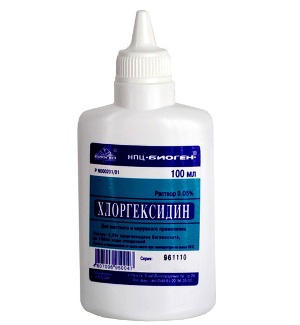
If necessary, the patient is prescribed antibiotic and vitamin therapy. Used to suppress bad breath essential oils peroxide compounds.
How to get rid of the problem at home

Peppermint
Folk remedies are aimed at eliminating unpleasant odors. For this purpose, it will be useful to chew during the day. basil leaves or peppermint.
To eliminate the fetid odor, rinsing is carried out using herbal decoctions . If halitosis is the result of sore throat, then rinsing with decoction will be useful. sage. Decoctions with lemon balm, lemongrass, echinacea.
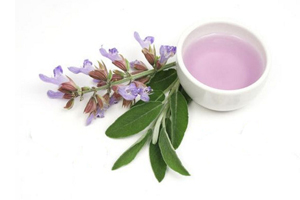
Sage decoction
Traditional medicine offers a proven method of getting rid of an unpleasant odor - rinsing using vegetable oils . It is believed that during this procedure all plaque and bacteria in the oral cavity are removed. The duration of the rinse is at least 15 minutes. After the procedure, the oil is spit out, and the mouth is rinsed with water or herbal decoction.
Enhance the effect of the procedure sea salt , which must be mixed with oil and left to dissolve. Rinse your mouth with the composition as described above. This procedure not only eliminates unpleasant odors, but also strengthens the gums.
 Quickly freshen your breath will help or celery. It is enough to chew a piece of any root crop to freshen your breath and get rid of an unpleasant aftertaste in your mouth.
Quickly freshen your breath will help or celery. It is enough to chew a piece of any root crop to freshen your breath and get rid of an unpleasant aftertaste in your mouth.
Alcohol tincture of celery It will also be useful in the fight against halitosis. To prepare the tincture, take a glass of vodka or alcohol and 2 tablespoons of chopped celery root. The resulting mixture is infused for two weeks in a dark, cool place, shaking occasionally. The finished tincture is used for rinsing, adding one tablespoon to half a glass of water. To relieve symptoms, it is recommended to carry out the procedure at least three times a day for two weeks.

